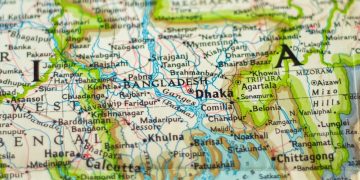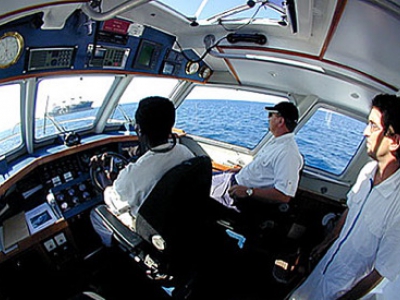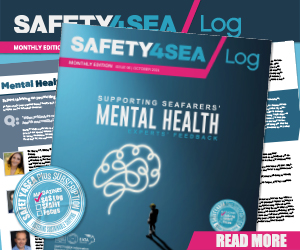PWC study on Pilotage Exemption Certificates for European Commission
A study on Pilotage Exemption Certificates, prepared by PwC and Panteia for the European Commission, Directorate-Generalfor Mobility and Transport, provides a comprehensive picture of the procedures and legal requirements for issuing Pilotage Exemption Certificates (PECs) across the EU, Croatia and Norway.
The study was intended to provide a baseline of information and data that can be further used to assess the need for a EU policy initiative on PECs.The data gathered during this Study has enabled the compilation of a comprehensive picture of what is happening across the EU, Croatia and Norway with regard to the issuance and usage of PECs.
In addition, a wealth of opinion has been gathered from a considerable cross-section of stakeholders, which is invaluable in terms of understanding how PECs are perceived and how their presence impacts on stakeholders.
Pilotage legislation
Over the last 15 years there have been major amendments to pilotage legislation, mostly concerning the way in which pilotage is organized, rules on pilotage, exemptions policy and PEC procedures. In countries that have recently joined or will join the EU changes have concerned alignment of policies with international and/or EU requirements.
Further changes to legislation are planned in thirteen countries. In some countries there are key changes planned with regard to the way pilotage and PECs are organized and processed:
– In Poland, future changes involve increasing homogeneity between regions;
– Denmark is proposing to make the requirement for obtaining a PEC less stringent;
– In the Netherlands consideration is to be given to the possibility of new PEC categories; and
– In Estonia there are plans to revise the pilotage exemption examination requirements, and to includeEnglish as an alternative to the national language.
The definition of pilotage in national legislation varies considerably
From the discussions held with stakeholders and responses obtained through the survey, it is clear that there aremany areas where perceptions and definitions vary between countries.
Pilotage is defined in national legislations in many different ways: in some cases the definition is fairly general applying to all types of pilotage, while in others it is specifically defined and/or categorized. In most instances pilotage is defined as either ‘port’ or ‘harbour’ pilotage.
However, it is the case that the nature of pilotage varies between countries and local circumstances – and therefore not all types of pilotage exist in one country .The definition and perception of shore-based pilotage can also vary between countries – in some countries advice from a pilot on board another vessel or pilot boat is classed as shore-based pilotage, while in others it is not.
The pilot can refuse or abort a mission on safety grounds
In terms of service level requirements there is a range of indicators and parameters across countries. There are a number of defined service level agreements in place, as in some UK and Irish ports (even where the port provides pilotage internally), Belgium (as part of a concession contract), France (set of service obligations) and in Malta (Service Level Agreement setting out level of service given by pilots and Cooperative Society).
Not all pilotage services are provided against a service level requirement
In terms of service level requirements there is a range of indicators and parameters across countries.
There are a number of defined service level agreements in place, as in some UK and Irish ports (even where theport provides pilotage internally), Belgium (as part of a concession contract), France (set of service obligations) and in Malta (Service Level Agreement setting out level of service given by pilots and Cooperative Society).
According to the information collated, there are no service level requirements present in Bulgaria, Denmark,Estonia, Greece, Poland, Slovenia and Spain.
There are no service level requirements in the UK at national level,though there are service level requirements stipulated at some CHAs
Requirements for obtaining a PEC
Across all countries a PEC applicant is generally required to hold a Master’s license or certificate. There are some variances regarding terminology however: for example in Bulgaria a valid ‘Certificate of Competence’ is required, and in Norway a ‘valid navigator’s certificate, any class’ is required.
With regard to nationality, in Bulgaria the Certificate of Competence must be issued or recognized by the Executive Agency Maritime Administration (EAMA), while in France, the Master must have a license issued in France or recognized by France.
In five countries (Bulgaria, Latvia, Lithuania, Malta and Portugal) a Chief Officer is not able to obtain a PEC. One port in the UK indicated this also, which suggests that there may be other CHAs in the UK where this is also the case
Fees charged to ships with PEC holders
Shipping lines are in many countries charged a significantly lower fee when a Master holds a PEC compared to the fee charged for a standard pilotage mission.
This is logical, in that a much lesser service is provided withregard to pilotage (e.g. there is no requirement for a pilot to physically board the vessel and advise the Captain).
Responses from nineteen countries provided an indication of the level of reduction which mostly ranges from 50% to 100% when compared with standard pilotage fees: in eleven countries there are no pilotage fees charged ifthe Master holds a PEC (Bulgaria, Denmark, Estonia, Finland, Lithuania, Malta, Netherlands, Poland, Portugal, Spain and Sweden), while in France there is roughly a 95% reduction when compared to standard pilotage fees.Information on the rationale for these charges was not obtained from the survey responses.
One possible explanation is that all vessels must contribute towards the cost of maintaining a pilotage service, as pilotage maybe required at any time, depending on the local circumstances or force majeure situations, for example.
|
What impact do PECs have on safety? From the analysis of accidents undertaken there is no evidence that PECs have negative effects on safety. Indeed,according to the analysis conducted regarding seven countries, it appears that on average the frequency ofaccidents of vessels with PEC holders on board is similar to the frequency of accidents when a pilot was on board:generally 0.18 accidents per 1,000 exempted missions. This frequency is slightly higher compared to a frequencyof 0.13 per 1,000 pilotage missions when a pilot was on board. The extent to which PECs impact on safety is a topic which attracts a range of opinions across stakeholder categories: safety is used as a justification for and against the use of PECs. National administrations generally consider that there are no major impacts on safety through the use of PECs,but many stress that PECs must be organized according to strict rules in order to ensure safety. This point is echoed by ECASBA and EMPA, with both organizations commenting on the need for transparency and objectivitywith regard to the approach to PECs and the need for an efficient monitoring process. It is clear that views are divided geographically: national authorities from the Mediterranean area are more reluctant to use PECs due to the view that PECs have a negative impact on safety of navigation. Pilots are more of the opinion that PECs have a negative impact on safety (60% of pilots who responded to the online survey stated this). This contrasts with the Port Authorities which are mostly of the view that PECs do nothave an impact on safety at all (59% of respondents). Shipping companies expressed a more positive view on theimpact of PECs on safety. Indeed, they claim that exemption certificates are granted only when a certain level ofexperience has been gained by Masters, who therefore are much less likely to be involved in accidents, and moreable to avoid risks, as a result of their knowledge of specificities and limitations of their ships |
|
Accident trends on vessels with a pilot or exempted from pilotage National administrations were asked to provide details of accidents that have occurred in the last three yearsin their country, on vessels with a pilot or exempted from pilotage. Not all national administrations were able to provide statistics on the number of accidents and in some casesonly limited information was provided about each accident. Information on a total of 436 accidents was received. This figure includes 384 accidents that occurred to vessels with a pilot on board and 52 accidentsinvolving a vessel exempted from pilotage. Based on the information collated through the survey no clear trends are apparent in terms of the number ofaccidents over the three year period or compared to the activity levels at the ports in the countries under examination Total accidents by country France, Greece, Latvia and Bulgaria reportedly experienced no accidents between 2009 and 2011, or the data were not available at national level. In the UK accident data was only available from two ports which are confidential. Figure below shows the number of accidents in each country as well as the total number of pilotage and PEC missions in the year 2011 (combined). It is apparent from the data there are no clear patterns, with significant variation across the vast majority of countries in the three years examined.
Figure shows accidents in 2009, 2010 and 2011 and all missions (with pilot or exempted frompilotage) in 2011 (Credit: PWC Study on Pilotage Exemption Certificates, page 201) – please click to enlarge |
|
Nature of accidents involving ships with a pilot on board and exempted ships Figure below cross-compares the nature of accidents involving vessels with and without a pilot. These figures include only accidents for which the nature of accidents was reported (211 accidents involving vessels with apilot on board and 48 accidents involving a vessel exempted from pilotage). Figure shows accident type in 2009-2011 period with and without a pilot present (Credit: PWC study on PIlotage Exemption Certificates page 202) – Click to enlarge image for more details For accidents occurring in the period 2009 – 2011, it seems that the split of accidents by their nature isrelatively similar, with or without a pilot on board. Around one-third of accidents comprise either a collision,grounding or hitting a pier or other element of port infrastructure, although a collision or grounding occursslightly less when there is no pilot on board. Hitting a pier or other element of port infrastructure occurs more frequently when there is no pilot on board. |
For more information, please read PWC study onPilotage Exemption Certificates
Also read IMO – Pilot training and certification



































































